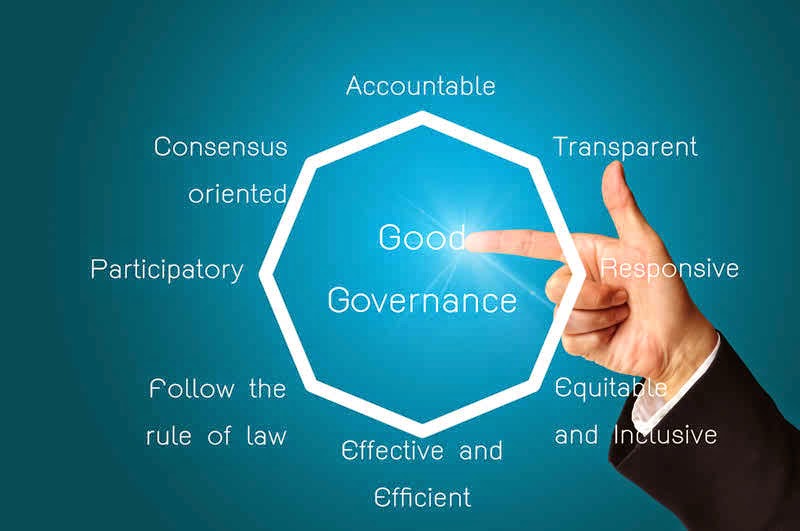What is Justice Citizenship? – Vanderbilt Law School

Report on Justice Citizenship and its Alignment with Sustainable Development Goals
Introduction: Reforming Judicial Systems for Sustainable Development
A recent analysis by Vanderbilt Law Professor Lauren Sudeall introduces the concept of “Justice Citizenship,” a framework advocating for the application of democratic values to the internal operations of judicial systems. This approach directly supports the United Nations’ 2030 Agenda for Sustainable Development, particularly Sustainable Development Goal 16 (SDG 16), which aims to promote peace, justice, and strong institutions. By reconceptualizing the relationship between individuals and the courts, this framework provides an actionable strategy for developing the effective, accountable, and inclusive institutions central to SDG 16.
Core Principles of Justice Citizenship for Achieving SDG 16
The “Justice Citizenship” model is built on three core democratic values that serve as benchmarks for judicial reform. These principles are intrinsically linked to specific targets within the Sustainable Development Goals, offering a roadmap for creating more equitable and effective justice systems.
-
Equal, Informed, and Meaningful Participation
This principle asserts that all individuals must have equal access to the courts and the ability to participate meaningfully in their own legal proceedings. This directly addresses SDG Target 16.3: Promote the rule of law and ensure equal access to justice for all, and SDG 10: Reduced Inequalities. By ensuring that justice is not contingent on a person’s background or resources, courts can become more inclusive and equitable. Key reforms that advance this goal include:
- Implementation of court navigator programs to guide litigants.
- Adoption of plain language in all court documents and communications.
- Simplification of complex procedural and evidentiary rules to enhance accessibility.
-
Self-Determination
This value emphasizes the right of litigants to direct their own journey through the justice system, making informed decisions about their rights and legal strategies. This aligns with SDG Target 16.7: Ensure responsive, inclusive, participatory and representative decision-making at all levels. Empowering individuals to exercise agency within the legal process ensures that the system is responsive to their needs and values, rather than imposing a court-driven outcome. This fosters a justice system that is truly “for the people,” strengthening its legitimacy and public trust.
-
Accountability
This principle calls for greater transparency and mechanisms for public oversight within the judiciary. This is a direct implementation of SDG Target 16.6: Develop effective, accountable and transparent institutions at all levels. True accountability requires that citizens can not only observe the workings of the court but also act upon their observations to enforce standards of justice and fairness. Methods for enhancing accountability include:
- Establishing formal mechanisms to collect and integrate feedback from court users.
- Utilizing citizen focus groups and review boards to provide oversight.
- Ensuring public access to information regarding court performance and decision-making processes.
Conclusion: Advancing Global Goals Through Local Justice Reform
The “Justice Citizenship” framework offers a vital opportunity to advance democratic principles and achieve key Sustainable Development Goals at the local level. By focusing on participation, self-determination, and accountability, judicial systems can be transformed into stronger, more transparent, and people-centric institutions. This approach is fundamental to building the peaceful, just, and inclusive societies envisioned in SDG 16, ensuring that the government, including its judicial branch, remains by and for the people it serves.
SDGs Addressed in the Article
SDG 16: Peace, Justice and Strong Institutions
- The entire article is dedicated to improving the justice system, which is the central focus of SDG 16. The concept of “justice citizenship” proposed by Professor Sudeall aims to make courts more democratic, accessible, and accountable. This directly supports the overall goal of SDG 16 to “promote peaceful and inclusive societies for sustainable development, provide access to justice for all and build effective, accountable and inclusive institutions at all levels.” The article’s argument for applying democratic values to the internal workings of courts is a clear call to strengthen these institutions from within.
Specific SDG Targets Identified
-
Target 16.3: Promote the rule of law at the national and international levels and ensure equal access to justice for all.
- The article directly addresses this target by focusing on access to justice. The principle of “Equal, informed, and meaningful participation” is highlighted, which requires that “all litigants have equal access to the courts—including access to information about relevant laws and procedures.” This aligns perfectly with the goal of ensuring equal access to justice for all citizens.
-
Target 16.6: Develop effective, accountable and transparent institutions at all levels.
- The article’s third pillar of “justice citizenship” is “Accountability.” It explicitly states that “Transparency and public access to information are often lacking in the court system, reducing its accountability.” The call for mechanisms to collect feedback and for citizens to “hold that system accountable to its goals” is a direct effort to make judicial institutions more effective and accountable, as stipulated by this target.
-
Target 16.7: Ensure responsive, inclusive, participatory and representative decision-making at all levels.
- This target is reflected in the article’s emphasis on participation and self-determination. The concept of “Self-determination” is described as the ability to “direct one’s own journey through the justice system.” Furthermore, the call for “meaningful participation” and mechanisms like “focus groups and citizen review boards” aims to make the justice process more responsive to and inclusive of the citizens it serves.
-
Target 16.10: Ensure public access to information and protect fundamental freedoms, in accordance with national legislation and international agreements.
- The article implies this target by identifying a lack of access to information as a key barrier to justice. The pillar of “Equal, informed, and meaningful participation” is predicated on citizens having “access to information about relevant laws and procedures.” The discussion on “Accountability” also hinges on “public access to information” so that citizens can observe and act upon the workings of the court system.
Indicators for Measuring Progress
-
Indicators for Equal Access to Justice (Target 16.3)
- The article implies several practical indicators through its mention of reform proposals. Progress could be measured by:
- The establishment and utilization of “court navigator programs.”
- The adoption of “plain language” in legal documents and communications.
- The degree of “simplification of procedural and evidentiary rules.”
- The article implies several practical indicators through its mention of reform proposals. Progress could be measured by:
-
Indicators for Accountable and Transparent Institutions (Target 16.6)
- The article suggests concrete mechanisms that can serve as indicators for accountability. Progress could be measured by:
- The existence and use of “mechanisms to collect and incorporate feedback from court users.”
- The implementation of “focus groups and citizen review boards” to provide oversight and ensure courts are responsive to citizens.
- The article suggests concrete mechanisms that can serve as indicators for accountability. Progress could be measured by:
-
Indicators for Inclusive and Participatory Decision-Making (Target 16.7)
- The principles of self-determination and participation imply indicators related to citizen agency. Progress could be measured by:
- The ability of litigants to exercise “self-determination” and direct their own legal process, potentially measured through user surveys.
- The extent to which citizens can “meaningfully engage in or to direct their justice process,” as facilitated by the aforementioned feedback mechanisms and review boards.
- The principles of self-determination and participation imply indicators related to citizen agency. Progress could be measured by:
Summary Table of SDGs, Targets, and Indicators
| SDGs | Targets | Indicators (Implied from the article) |
|---|---|---|
| SDG 16: Peace, Justice and Strong Institutions | 16.3: Ensure equal access to justice for all. |
|
| SDG 16: Peace, Justice and Strong Institutions | 16.6: Develop effective, accountable and transparent institutions at all levels. |
|
| SDG 16: Peace, Justice and Strong Institutions | 16.7: Ensure responsive, inclusive, participatory and representative decision-making at all levels. |
|
| SDG 16: Peace, Justice and Strong Institutions | 16.10: Ensure public access to information. |
|
Source: law.vanderbilt.edu

What is Your Reaction?
 Like
0
Like
0
 Dislike
0
Dislike
0
 Love
0
Love
0
 Funny
0
Funny
0
 Angry
0
Angry
0
 Sad
0
Sad
0
 Wow
0
Wow
0












































































